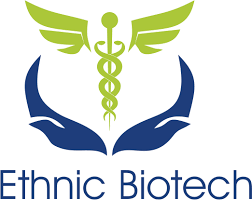Case Studies: Success Stories with Ethnic Biotech’s Advanced Nutraceuticals
February 12, 2024Sports Nutrition Unveiled: Enhancing Performance with Ethnic Biotech’s Niche Products
February 12, 2024Understanding the Gut-Brain Connection: Probiotics in Mental Health
In recent years, a growing body of research has highlighted the intricate relationship between the gut and the brain, often referred to as the “gut-brain axis.” This connection plays a pivotal role in regulating not only digestive function but also mental health and cognitive function. Within this complex interplay, probiotics—beneficial bacteria that inhabit the gut—have emerged as a promising avenue for supporting mental well-being. Join us as we explore the fascinating link between the gut and the brain and delve into the role of probiotics in promoting mental health.
The Gut-Brain Axis: A Two-Way Communication Highway
The gut and the brain are intricately connected through a bidirectional communication network known as the gut-brain axis. This axis comprises various pathways, including the central nervous system, the enteric nervous system (ENS) of the gut, and the vast community of microbes that inhabit the gastrointestinal tract, collectively known as the gut microbiota. This dynamic interaction allows for the exchange of signals and influences between the gut and the brain, impacting various aspects of physical and mental health.
Probiotics: Nurturing the Gut Microbiota
Probiotics are live microorganisms that confer health benefits when consumed in adequate amounts. These beneficial bacteria play a crucial role in maintaining a healthy balance within the gut microbiota, supporting digestive function, immune health, and inflammatory responses. Emerging research suggests that probiotics may also exert profound effects on mental health by modulating the gut-brain axis and influencing neurotransmitter production, neuroinflammation, and stress responses.
Probiotics and Mental Health: The Evidence
Numerous studies have explored the potential of probiotics in promoting mental well-being and addressing various mental health conditions, including anxiety, depression, and stress-related disorders. Research indicates that certain strains of probiotics, such as Lactobacillus and Bifidobacterium species, may have mood-regulating properties and can help alleviate symptoms of anxiety and depression.
Mechanisms of Action: How Probiotics Impact Mental Health
The mechanisms underlying the beneficial effects of probiotics on mental health are multifaceted and complex. Probiotics have been shown to modulate the production of neurotransmitters such as serotonin, gamma-aminobutyric acid (GABA), and dopamine, which play key roles in regulating mood, anxiety, and stress responses. Additionally, probiotics can help regulate neuroinflammatory processes, reduce oxidative stress, and enhance the integrity of the gut barrier, all of which contribute to improved mental well-being.
Applications in Clinical Practice: Harnessing the Power of Probiotics
As our understanding of the gut-brain axis continues to deepen, healthcare practitioners are increasingly integrating probiotics into mental health interventions. Probiotic supplements, along with dietary modifications aimed at nurturing a healthy gut microbiota, are being used as adjunctive therapies for individuals with mood disorders, anxiety, and stress-related conditions. By optimizing gut health, probiotics offer a natural and holistic approach to supporting mental well-being.
Future Directions: Unlocking the Full Potential of Probiotics
While the evidence supporting the use of probiotics in mental health is promising, further research is needed to elucidate the specific strains, dosages, and treatment protocols that yield optimal therapeutic benefits. Future studies exploring the mechanisms of action of probiotics in the context of mental health, as well as large-scale clinical trials assessing their efficacy, will help guide clinical practice and inform personalized treatment approaches.
Conclusion: Cultivating Gut Health for Mental Well-Being
The gut-brain connection represents a fascinating frontier in the field of mental health, offering new insights into the complex interplay between the gut microbiota and brain function. Probiotics, with their ability to nurture a healthy gut microbiota and modulate the gut-brain axis, hold immense potential as natural interventions for promoting mental well-being. As we continue to unravel the mysteries of the gut-brain connection, probiotics offer a promising avenue for enhancing mental health and cultivating overall wellness.
